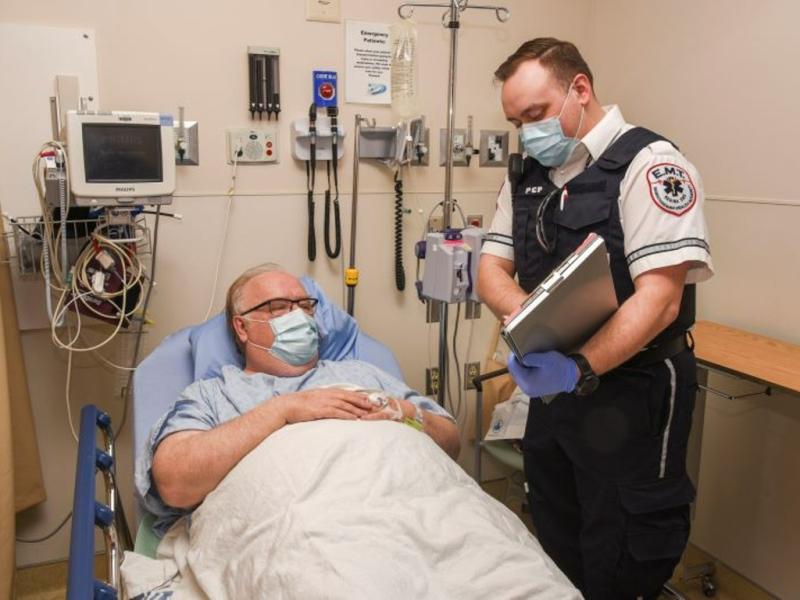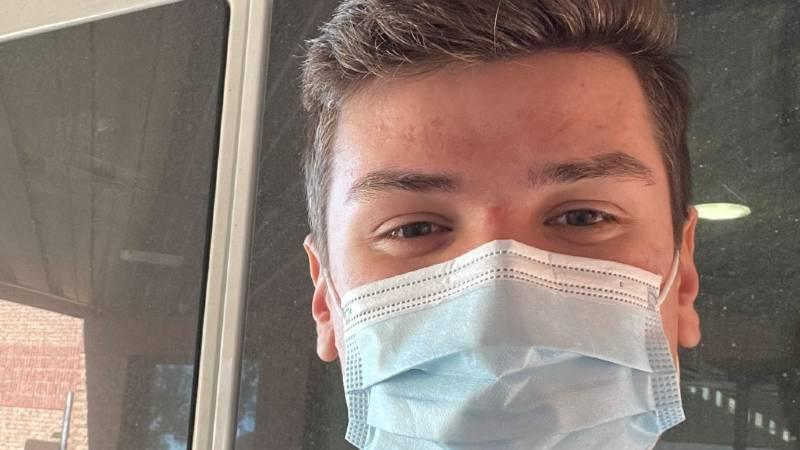Emergency Medical Services Career Profile
What is Emergency Medical Services?
Emergency Medical Services (EMS) is a team of professionals that provide health-care services to patients in emergency situations and are primarily the first on the scene to provide care. The team also provides transportation services (by ambulance, helicopter or plane) for patients needing to be moved to another facility to access care. A growing area for EMS is Community Paramedicine where Emergency Medical Responders and Paramedics provide non-emergency health services in the community. EMS is all about teamwork and strong communications and is made up of highly trained Emergency Medical Responders and Paramedics.
An Emergency Medical Dispatcher (EMD) is a skilled communicator that works over the phone and is responsible for pre-hospital care and communicating with other EMS team members in order to coordinate emergency care or transportation services for patients. EMRs are usually the first point of contact for patients in emergency situations and are required to assess the patients current situation in order to provide bystanders instructions and further details to paramedics to address the emergency situation. Working as an EMD requires strategic thinking and is a great career choice.
An Emergency Medical Responder (EMR) is the entry level into EMS. These highly skilled members of the team provide many life-saving interventions and transport of ill or injured patients. As with all members of the EMS team, they respond anytime and anywhere, which requires them to be able to cope with stressful situations under pressure.
A Primary Care Paramedic (PCP) has a higher level of training. They take approximately one year of specialized training at a technical institute and can provide more comprehensive assessments and medical interventions.
An Advanced Care Paramedic (ACP) is the highest level of EMS training for ground ambulance services. These paramedics must have experience at a PCP level and may choose to take a further two years of additional training. They can perform many complex assessments and medical interventions, including the administration of many medications.
Critical Care Paramedics generally practice in specialized settings including air (fixed wing and rotary wing) transport.
Paramedics work in a number of settings other than an ambulance, including wilderness, clinics, hospitals and community based services. While there are times of extreme pressure and stress, it is a very rewarding career.
What is it like working for the Emergency Medical Services team with the Saskatchewan Health Authority (SHA)?
Working with the SHA, you will be required to work in shifts and on-call. The SHA provides many benefits for EMS staff including training opportunities to move up a level as a paramedic or into management roles, and broader scope of practice opportunities such as assisting emergency departments with patient care.
Learn more from our staff!
What can I earn working in Emergency Medical Services?
Per hour on-call stipends are also included in addition to the following pay bands.
- Emergency Medical Responder – $22.60 – $24.21
- Primary Care Paramedic– $29.90 – $36.57
- Intermediate Care Paramedic – $32.30 – $39.49
- Advanced Care Paramedic – $39.65 – $48.45
In addition to the above pay band, the SHA provides a comprehensive benefits package including:
- Extended health and dental benefits
- Defined benefit pension plan
- Life & Disability Insurance
- MyWellbeing Program – resiliency resources, mental health and family support
- Paid annual vacation
Bursaries and relocation assistance of up to $13,000 may be available based on location! See additional bursary information below.
Emergency Medical Responders and Technicians working with the SHA are unionized employees. EMRs may be a part of the following unions based on location and EMTs are only members of the Health Sciences Association of Saskatchewan:
- Canadian Union of Public Employees (CUPE)
- Service Employees International Union (SEIU)
- Saskatchewan Government and General Employees Union (SGEU)
- Health Sciences Association of Saskatchewan (HSAS) – Paramedics Only
Where can I train to work in Emergency Medical Services?
To work in Emergency Medical Services, you will need to take an accredited certificate program to start off as a Primary Care Paramedic. In Saskatchewan, you can take the following programs:
- Emergency Medical Responder – Various Programs
- Saskatchewan Polytechnic – Primary Care Paramedic Certificate
- Saskatchewan Polytechnic – Advanced Care Paramedic Diploma
In order to work as an EMR or Paramedic, you will need to obtain a license from the Saskatchewan College of Paramedics (SCoP) after completing an accredited course and passing the licensing exam.




